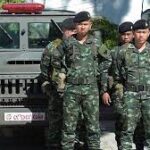Mikhail Gorbachev, who ended the Cold War without bloodshed but failed to prevent the disintegration of the Soviet Union, died on Tuesday at the age of 91, hospital officials in Moscow said.
Gorbachev forged arms reduction deals with the United States and partnerships with Western powers to remove the Iron Curtain that had divided Europe since World War Two.
His internal reforms helped weaken the Soviet Union to the point where it fell apart, a moment that President Vladimir Putin has called the “greatest geopolitical catastrophe” of the twentieth century.
Putin expressed “his deepest condolences”, Kremlin spokesman Dmitry Peskov told Interfax. “Tomorrow he will send a telegram of condolences to his family and friends,” he said.
World leaders were quick to pay tribute.
U.S. President Joe Biden said he had believed in “glasnost and perestroika – openness and restructuring – not as mere slogans, but as the path forward for the people of the Soviet Union after so many years of isolation and deprivation.”
“He gave freedom to hundreds of millions of people in Russia and around it, and also half of Europe,” said former Russian liberal opposition leader Grigory Yavlinsky.
He will be buried in Moscow’s Novodevichy Cemetery next to his wife Raisa, who died in 1999.
When pro-democracy protests rocked Soviet bloc nations in communist Eastern Europe in 1989, Gorbachev refrained from using force, but the protests fueled aspirations for autonomy in the 15 republics of the Soviet Union, which disintegrated over the next two years in chaotic fashion.
“The era of Gorbachev is the era of perestroika, the era of hope, the era of our entry into a missile-free world … but there was one miscalculation: we did not know our country well,” said Vladimir Shevchenko, who headed Gorbachev’s protocol office.
“Our union fell apart, that was a tragedy and his tragedy,” RIA news agency cited him as saying. On becoming general secretary of the Soviet Communist Party in 1985, he had set out to revitalise the system by introducing limited political and economic freedoms.
Gorbachev’s policy of “glasnost” allowed previously unthinkable criticism of the party and the state, but also emboldened those who began to press for independence in the Baltic republics of Latvia, Lithuania, Estonia and elsewhere.
Many Russians never forgave Gorbachev for the turbulence that his reforms unleashed, believing the subsequent plunge in their living standards too high a price to pay for democracy.
“He gave us all freedom – but we don’t know what to do with it,” liberal economist Ruslan Grinberg told the armed forces news outlet Zvezda after visiting Gorbachev in hospital in June.
Credit Reuters




